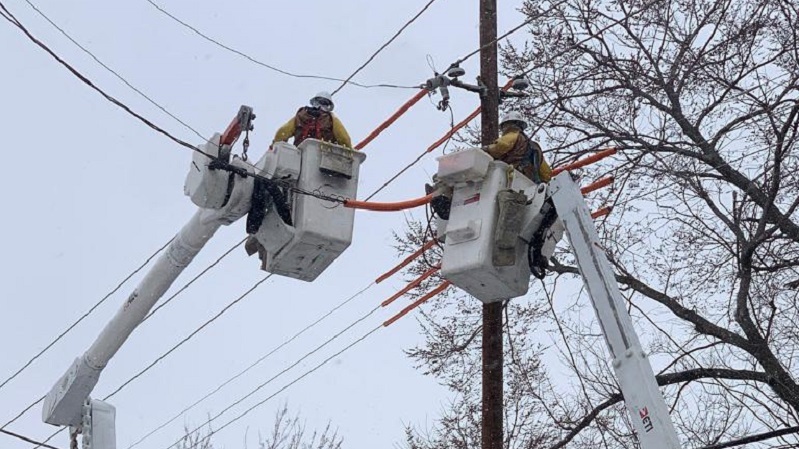It didn’t have to happen.
Energy Alliance policy director Bill Peacock said the Texas Legislature could have enacted policies that would have prevented the massive blackouts that left 4 million Texans shivering in the dark in mid-February.
Peacock said the Texas House of Representatives could have taken up and considered SB 2232 and HB 2908 in 2019, which could have helped prevent such a disaster. Instead, the bills died, he said.
“The Texas House of Representatives lost its chance in 2019 to head off the blackouts when it killed those bills,” Peacock told Texas Business Daily. “Beyond the weather, environmental policies that have been pushing renewable energy across the country and in Texas for a long time are largely keeping the Texas grid from providing reliable power.”
The Austin American-Statesman reported last month that wind shutdowns accounted for less than 13% of Texas power outages.
State Sen. Kelly Hancock (R-North Richland Hills) presented SB 2232 in 2019, which called for the Electric Reliability Council of Texas (ERCOT) and the Public Utility Commission of Texas (PUC) of Texas to examine the potential pitfalls of power shortages linked to subsidies for renewable fuels. It sailed through the Texas Senate but died in the Texas House's State Affairs Committee as environmental and renewable fuels lobbyists registered their opposition.
“The renewable energy lobby is powerful in Texas, particularly in the House,” Peacock said. “Their testimony on SB 2232 seemed to sway State Affairs Committee members not to support the bill.”
Rep. Dade Phelan (R-Orange), who currently serves as House speaker, chaired the committee.
Rep. Jared Patterson (R-Frisco) introduced HB 2908, which also called on ERCOT and the PUC to examine the potential impact of using federal subsidies for wind power. It made it through the House State Affairs Committee but stalled in the House Calendars Committee.
Peacock said the decision to kill those bills planted the seed for the storm that froze the Lone Star State and left at least 57 dead in its wake.
“Renewable energy subsidies were the leading cause of the blackouts,” he said. “A study by the PUC would have highlighted the dangers before the freeze.”
“This situation could have been avoided had ERCOT acted more swiftly — but it never would have been an issue had our grid not been so deeply penetrated by renewable energy sources that contribute the least when they are needed the most, yet are propped up by billions in taxpayer-funded subsidies every year,” a Texas Public Policy Foundation said in February.
Peacock said there are lessons to be learned from what other states have experienced.
“California has already had this problem last year when they had some outages and their wind played a role in those as well,” Peacock said in an interview. “The more wind and solar you get onto the grid, the more problems you're going to have with reliability.”
The legislature has a sketchy record when it comes to standing up to the renewables lobby, he said. Options do exist in Austin.
“But there are a number of bills that would address the problems with renewable subsidies," Peacock said. "Those include SB 829, SB 1278, SB 1282, HB 2084, and HB 2372. Renewable advocates are not letting the blackouts stand in the way of their agenda. A number of bills have been filed that would advance the green energy agenda. Those include HB 1556, SB 304, HB 928, and SB 955.”

